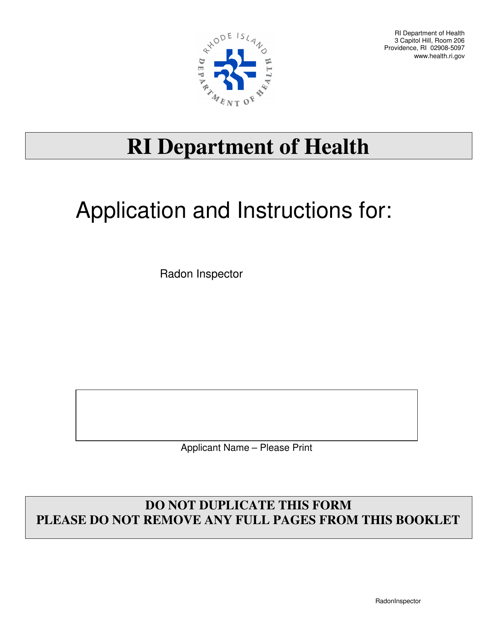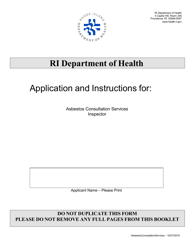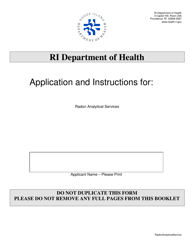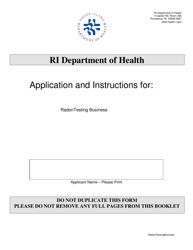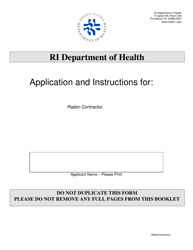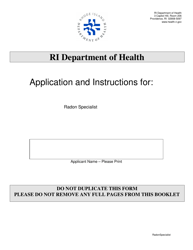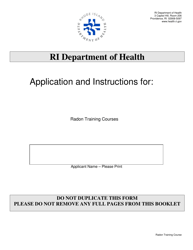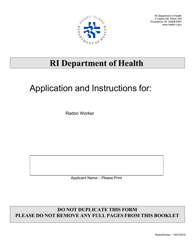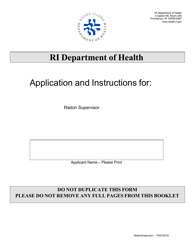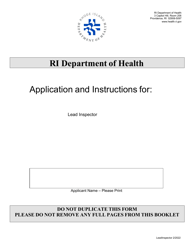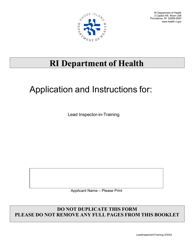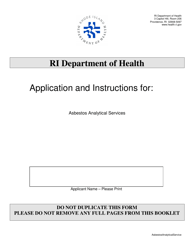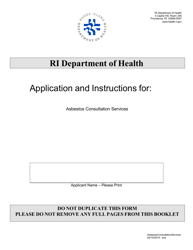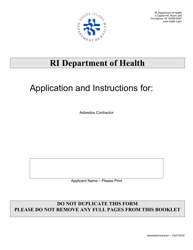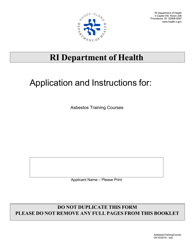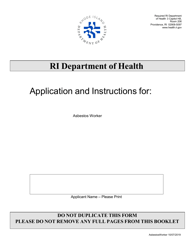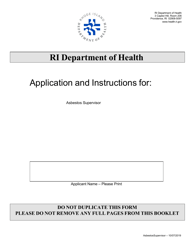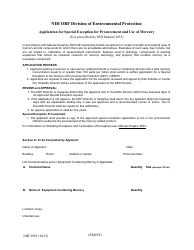This version of the form is not currently in use and is provided for reference only. Download this version of
the document
for the current year.
Application for Radon Inspector - Rhode Island
Application for Radon Inspector is a legal document that was released by the Rhode Island Department of Health - a government authority operating within Rhode Island.
FAQ
Q: What is a Radon Inspector?
A: A Radon Inspector is a professional who examines buildings for the presence of radon gas, a harmful substance that can cause lung cancer.
Q: Why should I hire a Radon Inspector?
A: Hiring a Radon Inspector is important to ensure that your home or building is free from radon, which can be harmful to your health.
Q: Is Radon a problem in Rhode Island?
A: Yes, Rhode Island has high levels of radon gas, and it is recommended to have your home or building tested for radon.
Q: How do I apply for a Radon Inspector in Rhode Island?
A: To apply for a Radon Inspector in Rhode Island, you can contact the Rhode Island Department of Health for more information and the application process.
Q: What are the qualifications to become a Radon Inspector in Rhode Island?
A: The qualifications to become a Radon Inspector in Rhode Island may vary, but typically include completing a training course and passing an exam.
Q: How much does a Radon Inspection cost in Rhode Island?
A: The cost of a Radon Inspection in Rhode Island can vary, but it is recommended to contact a licensed Radon Inspector for specific pricing details.
Q: How long does a Radon Inspection take?
A: The duration of a Radon Inspection can vary depending on the size and complexity of the building, but it typically takes a few hours to complete.
Q: Can I test for radon on my own?
A: Yes, there are do-it-yourself radon test kits available for purchase. However, it is recommended to hire a professional Radon Inspector for accurate and reliable results.
Q: How often should I have my home tested for radon?
A: It is recommended to have your home tested for radon every two years, or if you have made significant changes to your home's foundation or HVAC system.
Q: What should I do if my home has high levels of radon?
A: If your home has high levels of radon, it is important to take corrective measures to reduce radon exposure. This may involve sealing cracks, installing a radon mitigation system, or improving ventilation.
Form Details:
- The latest edition currently provided by the Rhode Island Department of Health;
- Ready to use and print;
- Easy to customize;
- Compatible with most PDF-viewing applications;
- Fill out the form in our online filing application.
Download a printable version of the form by clicking the link below or browse more documents and templates provided by the Rhode Island Department of Health.
